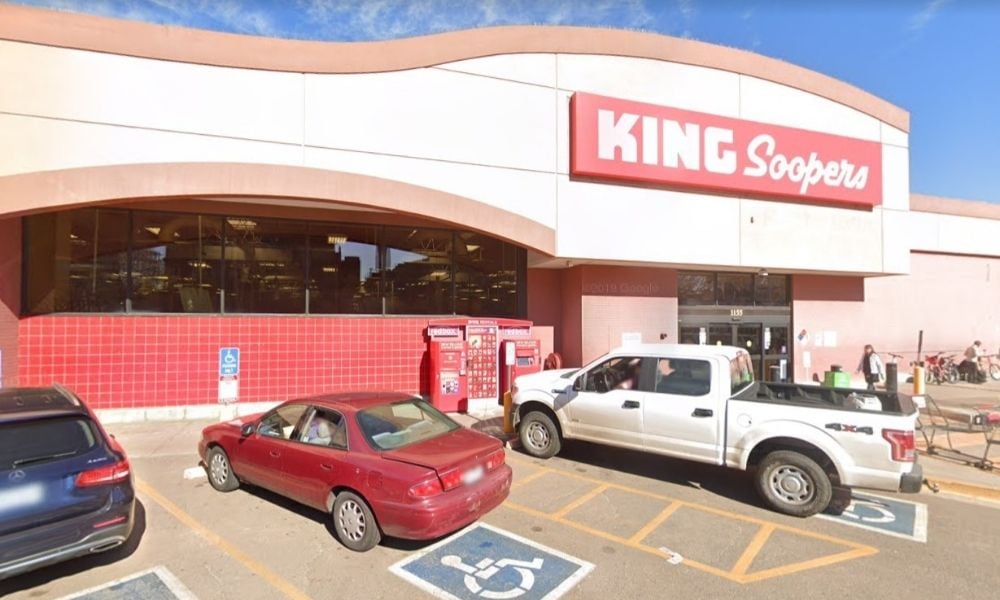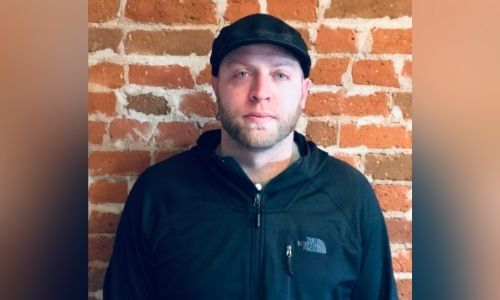'Instantly, I went from a cashier to a therapist, where everyone wanted to talk to me about the virus'

For many workers, the onset of the pandemic meant they traded in their commutes and fancy coffees for home brew and walks to work from one room to another.
But many others had to leave the house to work on the front lines. That included Adam Kaat, who quit his corporate job in 2019 to fulfill a lifelong dream to write a novel. To keep paying the bills, he also started working as a grocery clerk at King Soopers, which is part of grocery giant Kroger, in Denver.
And then the pandemic hit.
“I thought it would be a fun job and keep me mentally clear [and] give me plenty of time to write and edit the book,” he says. “By mid-March [2020], everything changed: the whole world shut down.”
“Instantly, I went from a cashier to a therapist, where everyone wanted to talk to me about the virus; that’s all anyone wanted to talk about. They wanted to express how scared they were; everyone was so afraid and worried during that time and cashiers were the only people that anyone could talk to that weren’t in your family, and it was just a way to release and have a conversation.”
It was this experience that led Kaat to write Life on the Grocery Line: A Frontline Experience in a Global Pandemic, which detailed, in a semi-fictional way, what employees went through in the early days.
“It was like no one knew what was going on, just doom-scrolling on Twitter. We didn’t have masks or any of the plexiglass or any of the things set up at first, so it was just such an uncertain, panicked and anxiety-ridden time,” he says.
“I started writing to just deal with it, to express what was going on and it was very unique moment in history. Writing is the best way to process the world for me, that’s how I get through.”
Kaat used a fictional character called Daniel who works at a high-end grocery store in Denver, to illustrate his life.
“I call it a work of fiction but there’s so much of it is true. There’s a lot of things that I made up to make a point to show anxiety, the fear but it’s very close to what happened to me, almost identical in so many different ways,” he says.
In looking at COVID-19 outbreaks, workplaces accounted for a much lower rate than the community, according to two recent studies.
Reaction to memoir
While many customers took out their frustrations on him, one regular store patron always took the time to show curiosity about how Kaat was feeling.
“He was more interested in talking about my life and my coworkers’ lives and what was going on with us and what it was like working there, and he was always interested in my writing. What I took from that was that it really was a great levelling event for some people. He was less interested in himself [and] was more interested in our world, and what we were going through, and I really appreciated that that. It made me feel like, ‘I guess people do care,’ because it did feel very isolating at times.”
The customer — who was a brain surgeon with six kids and a regular $600-per-week grocery bill — helped make Kaat feel like a “human,” he says.

“You got a mask, Plexiglas up, you got this world between, this gap and there’s this chasm between me and the customer. I thought, originally, the job would be mostly just joking around with people and using my gift of gab but you couldn’t do that as much because people couldn’t hear you. It was confusing, the conversations you’d have, unless they were slow and methodical, unless they wanted to listen to you and yeah, it was nice to get those occasional connections.”
In Canada, many grocery store chains offered “pandemic pay” to recognize the hard work of front-line staff.
Lessons learned from a pandemic
As the world, hopefully, begins to crawl out of the depths of the pandemic, Kaat says he learned some valuable lessons.
“I realized right away that we really need each other, humans really are social creatures through and through. And we don’t just need a few people, we need strangers, we need connection on a very large scale.”
His hope is that people read the book and take some solace and comfort in his experience.
“I think we can be better. The last few years have been eye-opening for so many people in so many ways but I am optimistic that we’ll be better for this and we can come together a little bit better, make smarter decisions, treat people better. I hope the book does that. I hope it opens people’s eyes.”
The retail industry seems to be rebounding as Lowe’s Canada recently announced it needs 5,000 new employees.




